Just like us, plants need food. While much of their energy comes from sunlight capture through leaves, they need a whole host of macro- and micro-nutrients which are used as building blocks to assist in biological processes.
Setting plants up with the right soil conditions and feeding with an all-rounder fertiliser is key to growing healthy crops. Read on to learn how and when to feed your plants.
Jump to section:
1. Understanding nutritional needs
2. Seasonal differences in feeding
3. How to apply feeds
As you can imagine, plants naturally have distinct nutritional preferences. For instance, slow growing succulents that thrive in arid conditions have significantly lower nutrient requirements compared to well-established trees, which can benefit from a generous application of slow-release fertiliser.
While there are exceptions, for the majority of garden plants in the UK, opting for an all-purpose feed simplifies the task; Meeting each plant’s shifting nutritional needs across different times of the year.
What is NPK?
The three most important nutritional elements to all plants are Nitrogen (N), Phosphorous (P) and Potassium (K).
Alongside N, P and K, there are a number of other trace micronutrients vital for plant health including Calcium (Ca), Magnesium (Mg), Sulphur (S) and Zinc (Zn), among others.
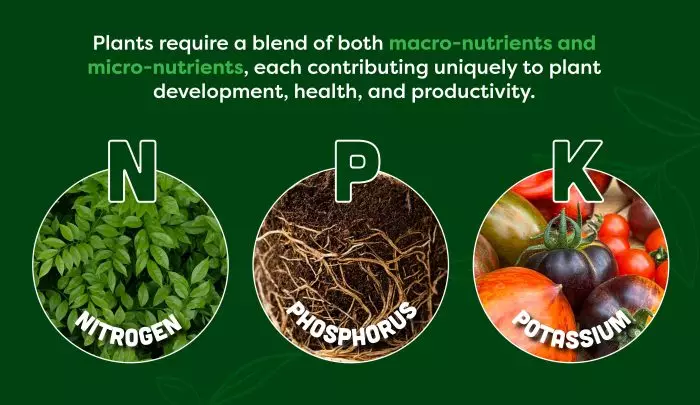
Nitrogen is one of the most commonly found elements within plants and is key component of chlorophyll molecules, promoting lush green leaf and shoot growth.
Phosphorous is essential for maturation of plants, serving a central role in ATP, the primary energy source for plants. It has the ability to stimulate root branching which can improve water and nutrient uptake.
Potassium is important for all cell growth and aids in Nitrogen uptake. It is in high demand during the fruiting and flowering stages due to its influence on sugar metabolism.
Not all soil is the same
Different soil-types contain different levels of nutrition and depending on your particular soil-type and where you are growing, you may need to supplement different levels of nutrients.
For example, dense and easily waterlogged clay soils contain essential nutrients, while chalky or sandy soils, though free-draining, lack any nutrients.
Similarly, bagged shop-bought compost is often lacking in nutrients and is rather sterile, devoid of beneficial bacteria or fungi and therefore less likely to support healthy plant growth.
When plants are grown in pots or raised beds, they can quickly wash nutrients through, making them even more likely to benefit from supplemental feeding.
A yearly top-dressing of mulch, manure or soil improver can introduce nutrients in your soil and improve soil structure, starting the season off right!
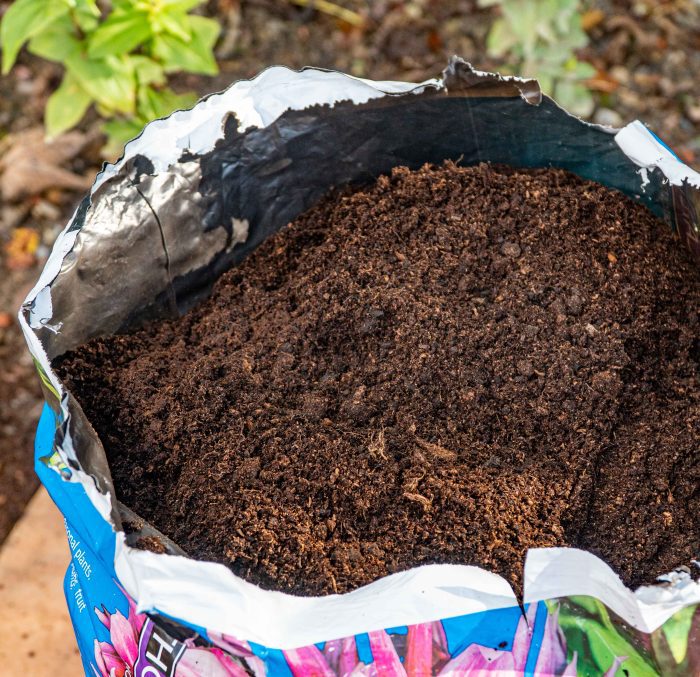
Top tip – It is also important to consider your soil pH. If your pH falls outside of the range of 6-7.5, your plants will be less able to uptake nutrients.
Plants have symbiotic relationships with the microorganisms in the environment around them. Interactions between plant roots, beneficial bacteria and mycorrhizal fungi are within complex, mutually beneficial systems, supporting nutrient absorption, disease resistance and overall plant health.
Envii Root Well is an organic combination of mycorrhizal fungi and beneficial bacteria designed to aid root development.
It enhances the uptake of nutrients and water through plants’ roots while also contributing to the building of disease resistance.
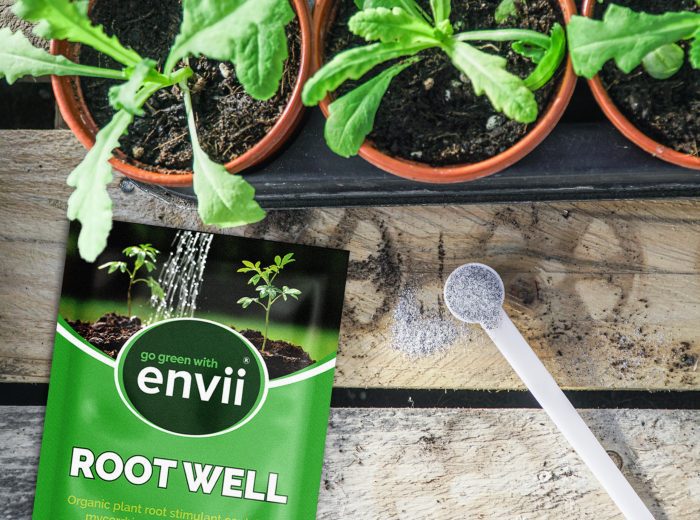
Spring – While the growth of plants is slow from the colder weather, feeding is less important. For seedlings, a high-Nitrogen fertiliser has the potential to scorch roots. Instead, try using a biostimulant seaweed feed like Seafeed Xtra which confers stress-resistance properties against drought, salinity and disease.
Summer – The most important time to feed your plants! To boost your crop harvests and prolong flowering, a weekly feed is preferable. Using an all-rounder liquid feed like Allgrow ensures you get the most out of your garden. For greenhouse crops such as tomatoes or cucumbers, a feed higher in potassium such as Maximato will help to boost your fruit yields.
Autumn – This season, as your Summer plants start to die back, clear your beds and apply a top dressing of well-rotted organic matter such as manure. This can either be dug into beds or laid directly on top.
Always follow the instruction on your packaging. Overdosing your plants can potentially be detrimental as excessive nutrients are a lot for smaller plants to handle.
Liquid feeds often suggest capful dosing, however, this can lead to waste or overfeeding. Envii’s range of feeds features an easily measurable dosage chamber, ensuring that you give precise amounts to your plants – a simple and efficient solution!
How to use Envii Allgrow
(1) Shake well before use.
(2) Mix 15ml of Allgrow into a watering can with 5L of water.
(3) Apply directly to the base of the plant, avoiding contact with foliage.
(4) Reapply every 7 days between March & September.
(5) Do not apply during frost or freezing conditions.
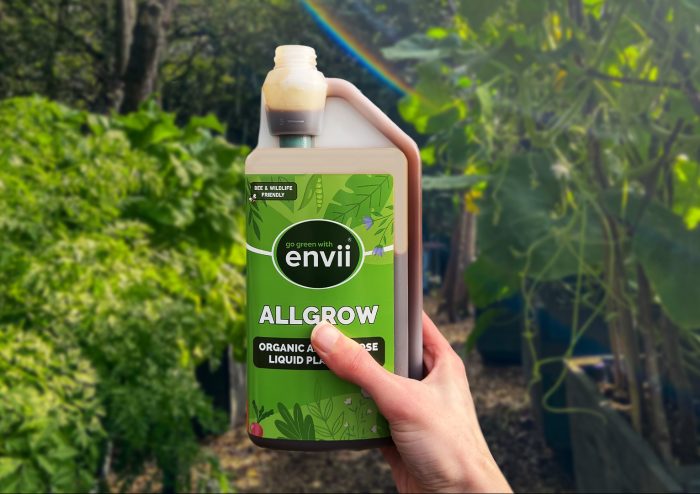
Top tip – The best time of day to water your plants is either in the morning or evening. Morning is recommended as there will be less slug and snail activity than if your plants are damp overnight.
Featured products
-
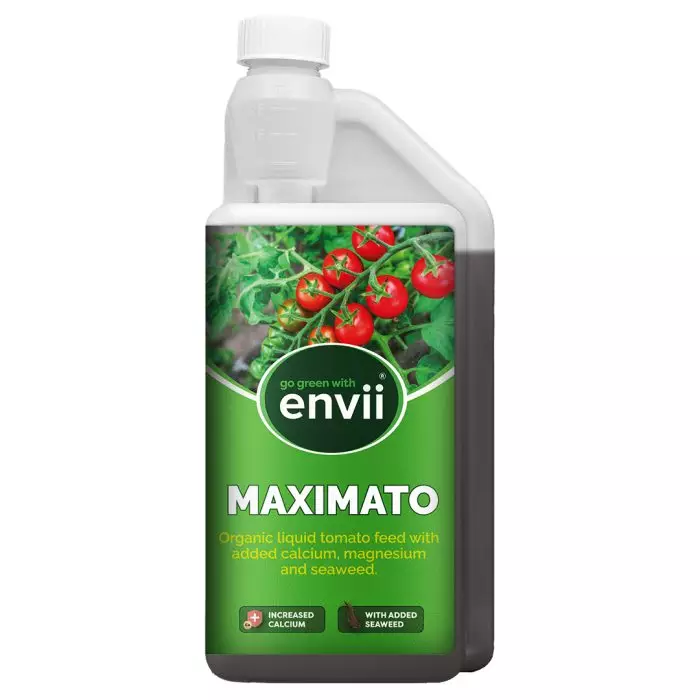
Envii Maximato
Organic liquid tomato plant feed with added seaweed, calcium and magnesium
£10.99 View Product -
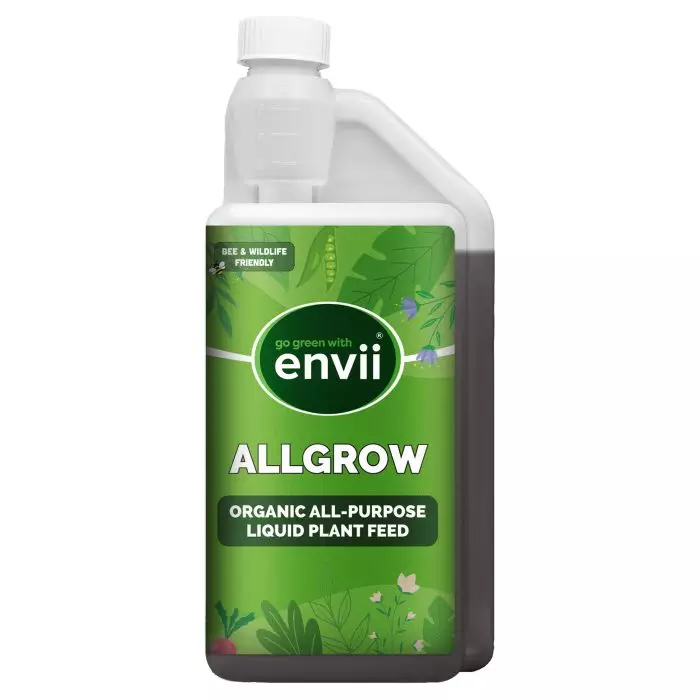
Envii Allgrow
Organic multi purpose plant feed for use on all plants
£10.99 View Product -
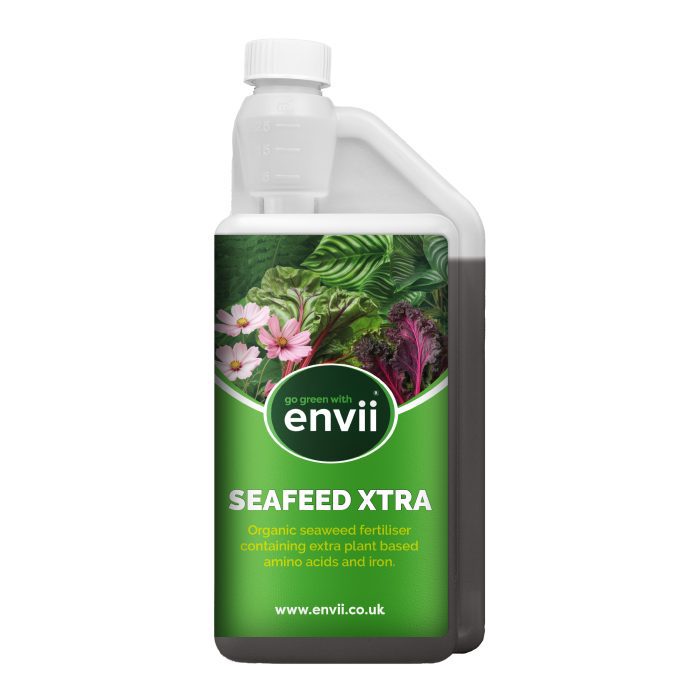
Envii SeaFeed Xtra
Organic seaweed fertiliser improves plant growth and health.
£12.99 View Product

 Call us on 01246 240880
Call us on 01246 240880 Free 48hr Delivery
Free 48hr Delivery Sign-up and receive 10% off
Sign-up and receive 10% off